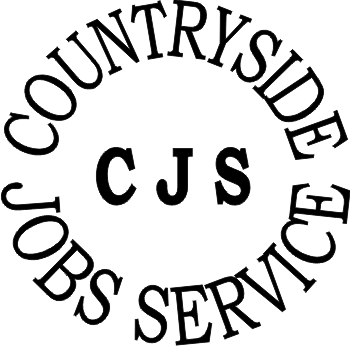About Naturenet
• What we do
• What we don't do
• What this logo means

• Naturenet FAQ
• A history of
Naturenet
• What others
have to say about us
• Awards we
have won
• Our other design
work
• How we do
it
• How you can
do it too!
• Copyright
Naturenet Editor Matthew Chatfield, Parks
and Countryside Manager for the Isle of Wight
Council writes:
Who is responsible for this thing?
"When I first started using the Internet,
I naturally looked for something about rangers and conservation. To my surprise,
there was nothing relevant to this country at all. So I started Naturenet,
which has been going since 1995. It is an ongoing magazine of information
which I find useful myself, and for others to find out about practical conservation
in this country."
Naturenet is a voluntary enterprise to provide a good online
resource for practical nature conservation and countryside management. We are
based in the UK, and most of the information available on Naturenet relates
to the UK, particularly England.
The original list of documents has now become a very large and
diverse resource, with information from a wide variety of sources. Because those
who write for Naturenet usually work in the countryside management industry,
the information is usually right up to date. For example, in April 1999 we changed all
our pages about the defunct Countryside Commission to refer to the new Countryside
Agency before they changed their own. Not that we'd want to remind them.
We also now provide some up-to-the minute comments, pictures,
and entertaining writing in The Ranger's
Blog.
Naturenet is intended for those interested in the countryside,
its management, and nature conservation. As well as anyone who enjoys visiting
the countryside this includes ecologists, rangers, wardens, volunteers, students,
tree wardens, biologists, bird watchers, land agents and farmers. We keep an
up to date reference section giving a huge range of information about organisations
which are involved in this field, and formal designations which are given to
reserves, parks and other sites. We also give advice to enquirers through our
famous 'Ask The Ranger'
page. As we use this feedback to decide on what next to publish, we have a pretty
good idea about what people want to know. Our advice often involves us redirecting
them to the right part of Naturenet!
Since our humble beginnings as a simple list many other pages
of information have been added, including countryside
law ,
environmental education
,
environmental education ,
biodiversity
,
biodiversity and countless others. These days a lot of other information about conservation is available but when we started, much of this sort of thing was not on the internet at all.
and countless others. These days a lot of other information about conservation is available but when we started, much of this sort of thing was not on the internet at all.
One thing we haven't really gone into is anything involving
any major technical web work - you won't find any animated features, membership areas, downloadable
videos, or anything like that. There's simply a whole load of top-quality information. We try to keep Naturenet very
simple and easy to use - and the content should be enough to make it useful. Much of the content has now been available for many years, but it is intended to remain useful and dated information is usually removed (when we spot it).
Wherever you see this logo  it indicates a link to a page of information which you will only find online
via Naturenet - original material we have compiled for you. This means it's
jolly good! Sometimes these do come partly from offline sources and we credit
these if known.
it indicates a link to a page of information which you will only find online
via Naturenet - original material we have compiled for you. This means it's
jolly good! Sometimes these do come partly from offline sources and we credit
these if known.
The spider logo was designed by our editor in 1985 on a ZX Spectrum,
for inclusion on a knitted jumper his mother was making. The spider is based
very loosely on the logo of the British Arachnological Society.
Some statistics to show how Naturenet has developed. We
still use a traditional front page counter as it was the original system we
started using back in 2002. The 'Visitors' stat is probably far from accurate,
and using server stats which we started doing in 2004, a considerable underestimate,
but it is all recorded using the same method, so provides a reliable comparison.
Note that from late 2005, The Rangers Blog
has been attracting a massive number of hits which are not recorded via this
system.
2007 |
tba |
1210 |
2993 |
2006 |
1261 (visits to blog now recorded
separately) |
(not recorded) |
(not recorded) |
2005 |
1560 |
854 (now includes generated pages
and subsites) |
2360 |
2004 |
1257 |
287 |
2076 (Dreamweaver count) |
2003 |
1236 |
270 |
(not recorded) |
2002 |
1193 |
267 |
1263 (Frontpage count) |
2000 |
600 |
239 |
898 (Frontpage count) |
1997 |
200 |
100 (est.) |
400 (est.) |
Naturenet is not intended for environmental pressure groups
and issues or campaigning charities (unless these charities are conservation
landowners as well). These bodies and topics are very well represented elsewhere
on the Web. This also means that things like bypass campaigns, hunting debates,
wind farms, animal rights, and pollution alerts are not normally part of our
remit.
We do not normally include matters concerning:
• Environmental campaigning bodies.
• Rain forest conservation and other non-UK conservation issues.
• Garden centres.
• Zoos/Safari parks.
• Exotic or domestic species refuges (including rare breeds).
• Craft centres and museums.
• Holiday parks, caravan and campsites.
• International volunteering schemes (we prefer environmental work to
be locally based)
• Green consumerism and products.
• Environmental sustainability, recycling, and renewable energy.
• Sustainable development and rural regeneration.
Please note that none of the above means that we do or don't
approve of these things - we might well, but it is not for publication on Naturenet.
By working at it! Lots of people send us information, and of
course we get a lot in ourselves from various sources. It's simply a matter
of spending time typing it in, for which task thanks go to those who have voluntarily
done so, and continue to do so. If you want some typing practice, and especially
if you have an HTML editor and know how to use it, we'd love your help too.
There has been great interest in Naturenet since it opened,
and by now we think we just about know what we are doing. However, this costs
money of course, so any ideas would be gratefully received. We salute Countryside Jobs Service who loyally sponsor and support Naturenet, and without whom the whole thing would have shut down years ago.
The index
of sites is now looking a bit shaky. This part of the site, originally the main body of information,
is now almost unused and pretty much unusable. We intend to convert it all to
an Access database or something when we can work out how. Probably something
to do with ASP we think, whatever that is. Any ideas or examples of a working
system would be gratefully received. Admittedly, in the meantime, the rest of
Naturenet has grown so much that the site index is now a lower priority than
it once was.
We used Microsoft FrontPage until 2003 to automate much of the
web housekeeping involved in this, for example, finding dead links and spotting
files which are no longer in use. It might be a rather authoritarian program,
but it was cheap. These days, we use Dreamweaver, as it seems to be much better
than Frontpage now we have a bit more experience in these matters.
As The Ranger learns more about coding - and by golly, it's
a slow process - newer bits of software get tacked onto the site. In 2005 The
Rangers Blog was introduced, shortly followed by live RSS feeds onto the
front page. All sorts of other stuff has changed since then. It will probably carry on like that.
If you want to, you can use Microsoft Internet
Explorer to view Naturenet. It will work perfectly well. But we think that
you should use Chrome,
as God intended. Don't let us influence you, though. ;)
We welcome submissions. In fact, we rely upon them. Click here
to submit something.
We have found that local knowledge is invaluable for filling
in the gaps in our index of sites. Have a look at your area, and see whether
there are any local sites you can add to it. A few of our references are a bit
old, or incomplete, so please do give us any more information if you have any.
We would be keen to hear from anyone who wants to be our 'correspondent' in
Scotland, Wales or Northern Ireland.
Sponsorship: if Naturenet was on paper we would have got sponsorship
from companies who support this sort of thing. As it is, we have not got very
far with this aspect of Naturenet. A couple of very loyal sponsors have chipped
in, but the whole thing does cost money, you know, so if your business is interested
in supporting us in kind or in money, or even just advice, we would love to
hear from you.
We are particularly grateful to Garrison
Investment Analysis for supporting us with all of the above so far, and
the Countryside Jobs Service
for long-standing contributions without which little of what you see would be
here. Thanks, both of you.
Naturenet is a project of Pinkeye
Graphics.
We have at the moment a small (very small) team of workers on
this project.
• Matthew
Chatfield (Editor)
• Cat James (Designer)
With advice and much help over the years from a few others,
upon whom no blame for the manifold errors found on this site should rest:
• Countryside Jobs Service who loyally sponsor and support Naturenet, and without whom the whole thing would have shut down years ago.
We also pay tribute to and strongly recommend the following
open-source or otherwise available software which we use, or have used, to help us run the
site:
• B2evo which was for many years used to run
The Ranger's Blog.
• Spam Free Wordpress by Todd Lahman
Also Eukhost on which this has been hosted, very reliably, since 2007.
Many others have contributed work to Naturenet - almost all without payment,
and their work is credited on the relevant page, if appropriate. Our thanks
to them all.
Note: Naturenet is wholly independent from the Isle of Wight
Council and indeed anyone.
Everything within the www.naturenet.net domain is
© copyright the author/s. Authorship is by Naturenet unless otherwise
indicated. You must ask our permission before you attempt to reproduce
any of this material. We normally give consent for all non-commercial
uses.
|
Back to the top of this document

